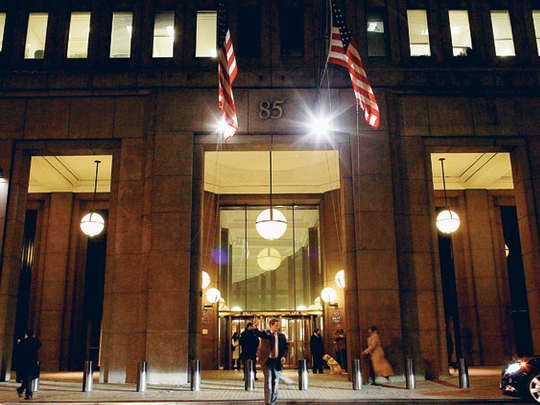
Washington: President Obama's push last week for new rules aimed at reining in the size and scope of the nation's largest banks faces an uncertain future in a Congress already divided over how to reform the financial regulatory system.
As a key Senate committee grapples with the details of a broad package of regulatory changes, the president's new measures could threaten to slow or even stall already precarious negotiations between Democrats and Republicans.
Legislation is working its way through the Senate Banking Committee, where chairman Senator Christopher Dodd, Democrat from Connecticut, and ranking Republican Senator Richard Shelby, Republican from Alabama, have expressed a desire to find common ground on a wide-ranging bill that includes such topics as consumer protections and giving regulators the power to wind down institutions whose failure could threaten the financial system.
But significant differences remain, and the president's call for additional reform adds to the many issues yet to be resolved.
"We're in the middle of these negotiations with the Republicans," Dodd spokeswoman Kirstin Brost said. "This is another item to add to the agenda."
While the president last week urged lawmakers to enact his latest proposals "My message to members of Congress of both parties is that we have to get this done," he said Dodd offered a measured response, saying he agreed that taxpayers shouldn't have to underwrite risky activities but withholding a full endorsement of any specific new policy.
He said only that he would give the president's proposal "careful consideration."
After Obama's announcement, Shelby and his Republican colleagues wrote to Dodd, asking that he hold a series of hearings "to examine these proposals in detail prior to taking any legislative action."
Hearing
Brost said Friday that Dodd plans to hold a hearing soon on the proposed rules, which would make it difficult for the nation's biggest banks to grow any larger and which would bar banks from making investments not directly aimed at benefiting customers.
The proposed restrictions are narrower than the now-defunct law known as the Glass-Steagall Act that separated Wall Street trading from commercial banking for much of the 20th century. But they share a similar goal of shielding taxpayers from subsidising high-risk financial activities.
The House recently passed its version of financial regulatory reform, which included provisions with aims similar to what Obama has proposed. That bill received no Republican support.
"The House has largely done what the president wants to do," said Steve Adamske, spokesman for Representative Barney Frank, Democrat from Massachusetts, chairman of the House Financial Services Committee, who voiced support for the new rules backed by the president. He noted, however, that Obama's proposals would make mandatory what the House bill left largely to the discretion of regulators.
Of course, if the Senate ultimately passes legislation that incorporates similar provisions, the two chambers would meet in conference to hammer out the final details. But that outcome lies far down the road and depends largely on whatever compromises Dodd and Shelby can reach.
Political ploy
Some Republicans and financial industry lobbyists said the latest White House proposals might be little more than a political ploy in the wake of the Democrats' loss last week in the Senate special election in Massachusetts.
If the president is serious about including the new rules on banks, they say, why do it now, after one chamber of Congress has passed its regulatory reform bill and another is months into negotiations on its own version? Rather, they said, it could be an effort to frame Republicans as allies of Wall Street if they oppose additional restrictions on big banks.
"This sounds more like campaigning than trying to get consensus and solve a problem," said one industry lobbyist, who spoke on the condition of anonymity because he deals with officials in the administration and on Capitol Hill.
He called the effort "more political than legislative."












